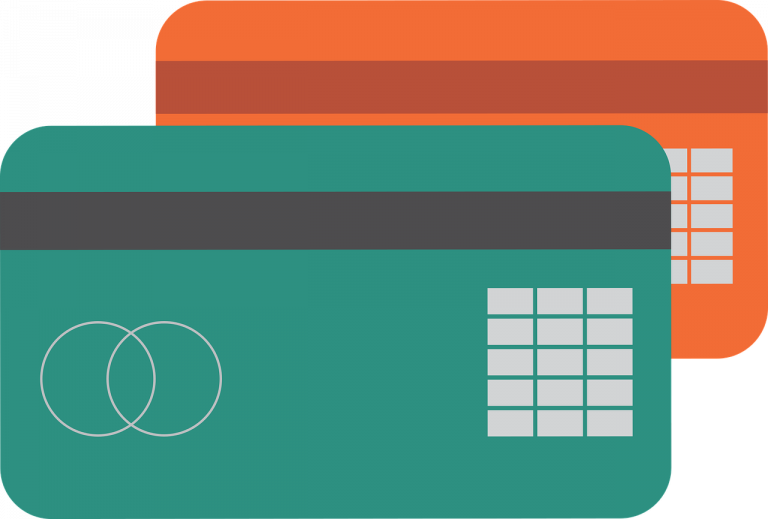Student loans in Nigeria are becoming increasingly popular as a way to finance higher education. With the rising cost of college tuition, more and more Nigerians are turning to student loans as a way to help fund their studies. In this blog post, we’ll explore the different types of student loans available in Nigeria, take a look at the pros and cons of taking out a loan for higher education, and provide some tips for those considering taking out a student loan in Nigeria.
What is a Student Loan?
Student loans in Nigeria are a great option for those looking to finance their college educations. Student loans are financial loans made to college students and their families to help pay for higher education. These loans can be used to cover tuition, books, living expenses, and other related costs. Student loans in Nigeria are typically offered by the federal government, banks, or other private lenders. Interest rates on student loans in Nigeria vary depending on the type of loan taken out and the lender. Most student loans in Nigeria require repayment, typically after graduation or when a student drops below a certain number of credit hours. The repayment period for student loans in Nigeria is usually 10 years, although some lenders may offer longer repayment periods. A cosigner may be required for some student loans in Nigeria, depending on the lender. Some lenders may offer deferment or forbearance options, which can help students manage their loan payments.
If you’re looking to finance your college education, a student loan in Nigeria might be the perfect solution. It’s important to understand the different types of student loans available, the interest rates and repayment plans, and any special conditions that may be attached to the loan. By doing your research and taking advantage of all the options available, you can find a loan that best fits your needs and your budget.
4 Banks Granting Student Loan In Nigeria
Student loans in Nigeria are available from a variety of banks, each offering different repayment plans and interest rates. GTBank offers student loan programs with repayment periods of up to 5 years, with repayment being interest free during the loan period. Applicants must provide a guarantor for the loan.
First Bank also offers student loan programs with flexible repayment plans and competitive interest rates. The loan is available to both Nigerian and international students and requires a guarantor for the loan.
Access Bank provides student loan programs to both Nigerian and international students with repayment periods of up to 5 years, with repayment being interest free during the loan period. Applicants must provide a guarantor for the loan.
Sterling Bank offers student loan programs with flexible repayment plans and competitive interest rates. The loan is available to both Nigerian and international students and requires a guarantor for the loan.
It is important for students in Nigeria to carefully research the student loan programs available to them in order to find the one that best meets their needs. By comparing the different loan programs, students are able to make an informed decision on which loan is right for them.
How to Get a Student Loan In Nigeria Banks
Student loans in Nigeria are a great way to help finance your education and get you one step closer to achieving your goals. Before you can apply for a student loan, it is important to determine your eligibility. Most Nigerian banks require applicants to be enrolled in a Nigerian university, college, or technical school. To ensure you get the best loan product for your needs, it is important to compare different student loan products offered by Nigerian banks. Depending on the loan product you choose, you may need to provide proof of enrollment in school, a guarantor, and/or proof of income.
Once you have gathered all the necessary documents, you can submit your loan application to the bank. The bank will review your application and respond with their decision. If your loan application is approved, you will be required to sign the loan agreement and make any necessary payments. Once your loan is approved and everything is in order, you can begin repaying your loan.
Student loans in Nigeria can be a great way to finance your education and get you closer to achieving your goals. To get started, make sure you research your options, gather the necessary documents, and apply. Once you have been approved and everything is in order, you can begin repaying your loan and achieving your dreams.
1. Access Bank Student Loan
Access Bank Student Loan is an excellent option for students in Nigeria who are looking to finance their educational expenses. The loan is available to students who wish to finance their educational expenses and they can borrow up to N5 million to pay for tuition fees, living expenses, and other related educational costs. The loan is offered over a period of up to five years, with repayment terms of up to 24 months. Access Bank Student Loan offers competitive interest rates and flexible repayment plans, making it easier for students to pay for tuition fees, textbooks, and other educational costs.
In addition to the loan, Access Bank provides a range of services to make loan repayment easier, including online and mobile banking. The bank also offers free financial education and counseling services to help students make the most of their loan. With the help of these services, students can gain a better understanding of their finances and make informed decisions about their loan repayment.
All in all, Access Bank Student Loan is a great option for students looking to finance their educational expenses in Nigeria. The loan offers competitive interest rates, flexible repayment plans, and a range of services to make loan repayment easier. With the help of Access Bank’s free financial education and counseling services, students can make the most of their loan and manage their finances effectively.
Features
Student loans in Nigeria offer an affordable and reliable way to finance your education. With competitive interest rates and flexible repayment terms, borrowers can customize their payments to meet their individual needs. Certain types of student loans may even be forgiven if you meet certain criteria. Taking out a student loan in Nigeria can also help build your credit score over time.
If you are in need of additional assistance, Nigerian universities may offer financial aid packages to students in need. Additionally, some lenders offer loan consolidation options, allowing you to combine multiple student loans into one monthly payment. Finally, Nigerian universities often provide scholarships to students who demonstrate financial need or academic excellence.
Student loans in Nigeria provide a viable option for financing your education. With low interest rates, flexible repayment terms, loan forgiveness, credit building, financial aid, consolidation, and scholarship options, you can find a loan that meets your individual needs.
Requirements
Student loans in Nigeria are a great way for students to finance their education. In order to be eligible for a student loan, Nigerian students must meet certain criteria and abide by certain regulations. To begin with, all applicants must have a valid student ID in order to apply. Additionally, students must also demonstrate a financial need, provide proof of enrollment at a Nigerian school, and have a good credit score and a stable source of income.
In addition, all student loans in Nigeria must be repaid within a certain period of time. Interest rates on student loans in Nigeria vary according to the type of loan and the lender. Some lenders may also require applicants to provide collateral in order to secure a loan. Furthermore, applicants may be required to submit additional documents and information in order to be approved for a loan.
It is important for Nigerian students to understand all the requirements and regulations before applying for a student loan. Taking the time to research and compare different lenders can help students find the best loan option for their needs. With the right information and resources, students can find the financial aid they need to pursue their educational goals.
2. Gt Bank Student Loan
Are you a student in Nigeria looking for a quick and easy way to cover your tuition and other education-related expenses? Look no further than the GTBank Student Loan, a loan that is open to both undergraduate and postgraduate students. With no collateral or guarantor required, borrowers can get up to N3 million. The repayment terms are flexible with up to 48 months to pay off the loan and interest rates are competitive and vary depending on the loan amount. The application process is also simple and straightforward, with no paperwork required. Funds are disbursed directly to the school’s bursary department, making it a fast and secure way to pay for tuition. With so many advantages, the GTBank Student Loan is an excellent option for students looking for financial assistance.
Features
Student loans are becoming increasingly popular in Nigeria as more and more people seek higher education and the opportunity to build better lives for themselves and their families. With a variety of loan options, flexible repayment plans, and low interest rates, student loans in Nigeria are becoming increasingly accessible.
The online application process for student loans is straightforward and easy to complete. Once the application is submitted, the loan is typically approved quickly, with no collateral or pre-payment penalty required. Furthermore, loan consolidation and deferment options are available, making it easier to manage your student loan debt.
In addition to the loan options available, students can also benefit from financial aid counseling, dedicated customer service, and access to scholarships and grants. Furthermore, credit score improvement tips, free credit score monitoring, and access to additional resources in English (US) language are also available to students.
When it comes to student loans in Nigeria, you can enjoy a variety of loan options, flexible repayment plans, and customer service that is dedicated to helping you succeed. With easy online application processes, low interest rates, and access to additional resources, student loans can provide the financial support you need to pursue higher education.
Requirements
Getting a student loan in Nigeria is a great way to finance your education. However, there are certain requirements that must be met in order to be approved. First, you must provide proof of acceptance to an accredited school. Secondly, you must be able to demonstrate financial need. Lastly, you must have a co-signer with a good credit score who will back the loan and be responsible for repayment if you default.
Additionally, most student loans in Nigeria require the borrower to begin making payments while still in school. This means that even if you are in school, you must be able to make monthly loan payments. As such, it is important to carefully consider your budget and make sure that you are able to make the payments before you apply for a student loan.
In order to be eligible for a student loan in Nigeria, you must be a Nigerian citizen and meet the minimum age requirement of 18 years old. You must also provide a valid form of identification such as a driver’s license or international passport. Many student loan providers in Nigeria also require borrowers to have a bank account in order to receive the loan. Lastly, students applying for a loan in Nigeria must have a proficiency in English (US) language.
By following these requirements, you can increase your chances of getting approved for
3. First Bank Firstedu Loan
Student loans are a great way for students in Nigeria to pay for school and other educational costs. First Bank Firstedu Loan offers students a convenient and affordable way to finance their education. With this loan, students can apply for up to NGN 5 million to cover tuition fees, school fees, accommodation, and other educational costs. The loan can be repaid in up to 36 months, with no pre-payment penalties.
First Bank Firstedu Loan offers students the flexibility to finance any type of degree, from undergraduate to postgraduate. There are a number of benefits that come with this loan, such as the ability to defer payments and a grace period of up to six months. Additionally, students have the option to apply for a loan top-up if they need additional funds.
With First Bank Firstedu Loan, students in Nigeria have an affordable and convenient way to finance their education. With flexible repayment terms, competitive interest rates, and the ability to finance any type of degree, it’s an excellent option for those looking for student loans in Nigeria.
Features/requirements
Student loans in Nigeria are a great way to fund your education and can make it easier to manage the cost of tuition, books, and other related expenses. The Nigerian government offers low interest rates on student loans, making them a more affordable way to pay for college. Furthermore, the terms of repayment are flexible, allowing borrowers to make payments according to their individual circumstances.
In Nigeria, student loans are available for undergraduate, graduate, and postgraduate studies, and there are also possibilities of loan consolidation and deferment of payments. This is especially helpful for students from low-income backgrounds, who may otherwise struggle to cover the costs of their studies.
The process of applying for a loan is simple and straightforward. You can apply for loans online, and you don’t need a co-signer. There are also credit score requirements that must be met in order to qualify for a loan, and financial counseling services are available to help you understand the process and make the best decisions for your financial future.
There is a wide range of loan products available in Nigeria, so you can find the one that best suits your individual needs. The processing times are also quick and efficient, and all documents are provided in English (US) language. Finally, if you are unable to secure a loan, there
4. Federal Government Education Loan
Nigerian students looking to pursue their higher education have access to Federal Government Education Loans. These loans are provided by the Federal Government of Nigeria to make higher education more accessible to all Nigerians. They are available for both undergraduate and postgraduate studies at accredited universities in the country and offer lower interest rates than private student loans, as well as more flexibility in terms of repayment.
The loan can be used for tuition fees, accommodation costs, books, and other related expenses. Repayments are deferred until after graduation, allowing students to focus on their studies without worrying about repayment. The repayment period is generally longer than private student loans, providing more flexibility and financial freedom.
Federal Government Education Loans are a great option for Nigerian students who are looking for a way to finance their higher education. These loans offer lower interest rates and more flexible repayment options, making them a viable option for students looking to pursue their studies without having to worry about the financial burden.
International Student Loans for Nigerian Students
Are you a Nigerian student looking for a way to finance your college education? International student loans for Nigerian students may be the perfect solution. These loans are typically offered through private lenders who specialize in international student loans and often feature lower interest rates than other loan programs, making them a more affordable option.
However, most international student loan programs require a cosigner, so make sure to research the different options carefully and choose the loan program that best meets your needs. Additionally, many international loan programs require students to have a credit history in order to qualify, so building a good credit score prior to applying is essential.
Repayment plans are also available to make international student loans more affordable. Be sure to ask about these plans when researching different loan options. Additionally, there are a number of scholarships and grants available specifically for Nigerian students which can be used to supplement an international student loan or to cover the cost of tuition and other expenses.
In conclusion, international student loans can be a great way to finance a college education for Nigerian students. However, it’s important to carefully research the different loan programs and select one that meets your needs. Additionally, building a good credit score before applying and taking advantage of repayment plans can help make international student loans more affordable. Lastly, don
How to Get an International Student Loan
Student loans are a great way to finance your education, but finding the right student loan in Nigeria can be a challenge. With so many different options out there, it can be difficult to find the best loan for your individual needs. To make the process easier, here are some tips for finding the best student loan in Nigeria.
First, it’s important to research international student loan programs offered in Nigeria. Compare rates, terms, and repayment schedules to find the best loan for your situation. You should also gather all the necessary documents, such as a passport, bank statements, and proof of enrollment in a Nigerian university. Once you have all the paperwork in order, you can submit online applications with the necessary documents to multiple lenders.
When researching student loan programs, look for lenders who offer loan programs with low-interest rates and flexible repayment periods. You should also consider government-sponsored loan programs that may offer lower interest rates and better repayment terms. Additionally, look for loan programs that offer loan deferment or forbearance options if you are unable to make payments on time. Finally, make sure that the loan program you select is approved by the Nigerian government.
By following these tips, you should be able to find the best student loan in Nigeria for your individual situation. Researching your options and
Conclusion
Student loans are a great way for Nigerian students to finance their post-secondary education. With the help of student loans, students can cover tuition, fees, living expenses, and other educational costs. In Nigeria, there are a variety of student loan options to choose from, including government-backed loans and private loans. To ensure you get the best loan for your needs, it’s important to research and compare all available loan options before deciding which one is best for you.
Before taking out a loan, make sure to understand all the terms and conditions of the loan, such as interest rates, repayment plans, and any additional fees. It’s also important to make all payments on time and in full to avoid late fees and other penalties. If you’re having difficulty making payments, contact your lender to discuss options for loan deferment or forbearance.
It’s also essential to understand the consequences of defaulting on a student loan in Nigeria. Defaulting on a student loan can have serious financial consequences, such as wage garnishment, damage to your credit score, and other fees. To learn more about student loans in Nigeria, be sure to check out the related posts below.






